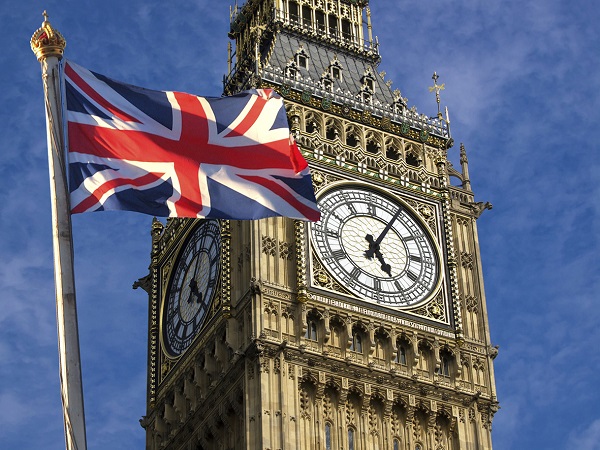Hung parliament: who will pharma negotiate with on new PPRS?

Negotiations for the replacement to the 2014 PPRS should be underway, but the recent UK election, and subsequent hung parliament, mean they are delayed. Leela Barham highlights the names of those – on all sides of the political spectrum – who could influence the makeup of the new scheme.
The results are in from the UK’s General Election: a hung parliament. It may not be what the Conservatives expected, nor what Labour hoped for, and the Liberal Democrats are probably pleased to have gained seats, but they never expected to win. However, the hung parliament does not give certainty over key issues that will affect the pharma industry in the next five years.
Another election?
If the Conservatives form a new minority government, another election could still happen, as they will be on shaky ground. Having lost their previous majority, losing 12 seats and falling short of the 326 seats needed for a majority, Theresa May is looking to make a deal with the Democratic Unionist Party (DUP). DUP secured 10 seats, and adding their backing would provide a narrow majority in the House of Commons.
Commentators have already noted that the UK history of minority governments is fragile. The Economist points out that the normal pattern is for a minority government to limp along for a short period and then collapse. The result is a return to the polls.
Industry must know the key players across parties – just in case
Given the uncertainty about how long a new Conservative government could last, industry will need to be ready to sit down opposite whatever colour of government will be in place when it comes to negotiating, and, crucially, putting the ink to the final agreement on the successor to the 2014 Pharmaceutical Price Regulation Scheme (PPRS). The PPRS is a voluntary agreement and represents a key opportunity for industry to table its wishes with government.
Negotiations usually start around 18 months before the end of the current scheme and, with the 2014 PPRS due to end on 31 December 2018, we are firmly in renegotiation territory now. The delay has probably been driven by the snap election.
If a new government only lasts for 12 months, who sits opposite the industry at the table could change.
It also means that a new PPRS is likely to be negotiated, uncomfortably, alongside Brexit.
On the blue team
If the Conservatives stay in power – at least for a while – some of the key players will be familiar to industry.
Despite some suggestions that Jeremy Hunt might go, he retained his seat and was kept on as Secretary of State for Health in yesterday’s cabinet reshuffle. Philip Dunne, Minister of State for Health, kept his seat too.
Nicola Blackwood and David Mowat, Parliamentary Under Secretary of State for Public Health and Innovation and Parliamentary Under Secretary of State for Community Health and Care both lost their seats. Blackwood had previously been given particular responsibilities for genomics, data and digital health and emerging health technologies.
It is not only those Ministers responsible for health that (should) play a role in the PPRS, but also Ministers at the Department for Business, Energy and Industrial Strategy (BEIS), given the importance of industrial policy.
All of the Ministers at BEIS kept their seats. Of note for industry is Jo Johnson, Minister of State for Universities, Science, Research and Innovation.
Industry may hope for a return of the post of Minister for Life Sciences. This could help pull together responsibilities that affect the industry, which is perhaps needed now more than ever.
On the red team
Industry will also need to know who may step in should an election happen during the PPRS negotiations. Labour’s Shadow Secretary of State for Health, Jonathan Ashworth, kept his seat. So too did Rebecca Long-Bailey, Shadow Secretary of State for BEIS.
On the yellow team
The new normal is that anything can happen in politics. So, despite the Liberal Democrats ruling out a coalition in the run up to the 8 June election, they could play a role if another election were to take place before the end of 2018.
Norman Lamb is the Lib Dems’ Shadow Secretary of State for Health. He retained his seat this time, and he was previously Minister for State for Health from September 2012 to May 2015 under the Conservative-Liberal Democrat Coalition government.
Lord Don Foster is the Lib Dem Shadow Secretary of State for BEIS, and as he is in the Lords, his position is unchanged since the 8 June election.
On the DUP team
A hung parliament was not a surprise to everyone, but the Conservatives partnering with the DUP is probably a surprise to most. Jim Shannon is the DUP spokesman for health and he retained his seat. David Simpson is the DUP spokesman on business, innovation and skills and he too retained his seat.
Behind the scenes, power brokers remain
In the fallout from the hung parliament, whatever colour of government finally signs up to whatever succeeds the 2014 PPRS, some key power brokers will remain. These are not only the civil servants at the Department of Health (DH) who have been working on the PPRS for years, but also key players including Her Majesty’s Treasury (HMT) and staff from NHS England and NICE. They will have influential voices, even if they are not formally at the negotiating table, alongside staff from the devolved nations.
Industry must ensure that it builds and maintains relationships like these, as they may offer the ‘strong and stable’ element that Theresa May has failed to deliver to date.
About the author:
Leela Barham is an independent health economist and policy expert who has worked with all stakeholders across the health care system, both in the UK and internationally. Leela works on a variety of issues: from the health and wellbeing of NHS staff to pricing and reimbursement of medicines and policies such as the Cancer Drugs Fund and Patient Access Schemes. Find out more here and contact Leela on leels@btinternet.com.
Read more from Leela Barham:












